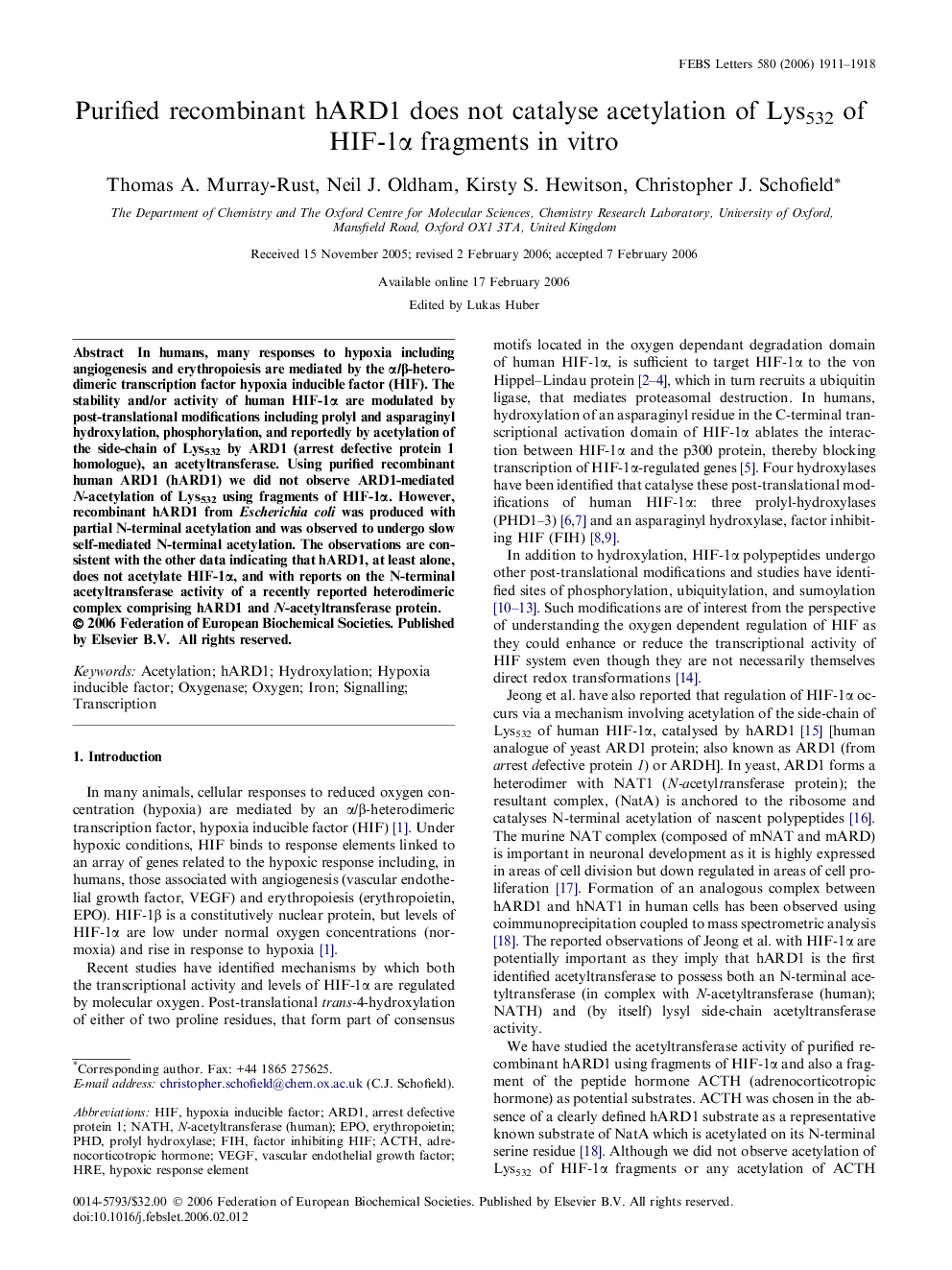| Article ID | Journal | Published Year | Pages | File Type |
|---|---|---|---|---|
| 2050804 | FEBS Letters | 2006 | 8 Pages |
In humans, many responses to hypoxia including angiogenesis and erythropoiesis are mediated by the α/β-heterodimeric transcription factor hypoxia inducible factor (HIF). The stability and/or activity of human HIF-1α are modulated by post-translational modifications including prolyl and asparaginyl hydroxylation, phosphorylation, and reportedly by acetylation of the side-chain of Lys532 by ARD1 (arrest defective protein 1 homologue), an acetyltransferase. Using purified recombinant human ARD1 (hARD1) we did not observe ARD1-mediated N-acetylation of Lys532 using fragments of HIF-1α. However, recombinant hARD1 from Escherichia coli was produced with partial N-terminal acetylation and was observed to undergo slow self-mediated N-terminal acetylation. The observations are consistent with the other data indicating that hARD1, at least alone, does not acetylate HIF-1α, and with reports on the N-terminal acetyltransferase activity of a recently reported heterodimeric complex comprising hARD1 and N-acetyltransferase protein.
